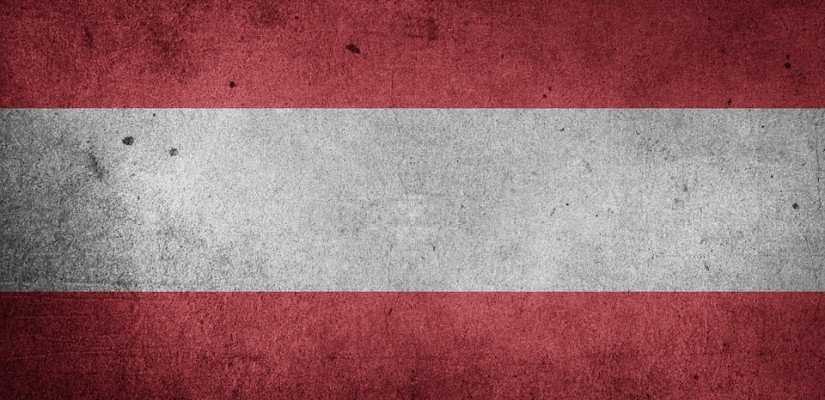Austria’s national intelligence agencies have been under close scrutiny by international intelligence services since right-wing parties have gained traction in the country. Western secret services and European intelligence sharing networks in particular now fear that Austria might convey confidential information to Russia, with which the country’s right-wing populist Freedom Party (FPÖ) maintains friendly relations. This puts Austria into a situation in which international intelligence agencies are unwilling to share information with the country. Snap elections that are expected to take place in the fall of 2019 may reshuffle domestic politics, however, and give Austria the opportunity to regain international confidence.
At the center of this political commotion is the Office for the Protection of the Constitution and Counterterrorism (BVT), one of Austria’s three national intelligence institutions. On February 28, 2018, police forces stormed offices of the BVT and confiscated material on the orders of Austria’s right-wing Minister of the Interior, Herbert Kickl. While the BVT is already subordinate to the Ministry of the Interior, the raid was an attempt to seize control of the intelligence office by the FPÖ. It is also assumed that the aim of the raid was to eliminate intelligence on far-right extremist groups in Austria. The search was declared unlawful in the aftermath, but Austria’s reputation had already suffered damage in the eyes of European intelligence agencies, which raised red flags over the right-wing takeover in Austria.
A core dynamic of Austrian politics is that two leading parties, the ÖVP and the center-left Social Democratic Party (SPÖ), almost never win outright majorities. Hence, Austrian governments are almost always coalition governments. The ÖVP and the SPÖ diverge sharply in their interests, so coalition between the two of them is almost impossible. This is why the third strongest party, the FPÖ , has had a strong influence on Austrian politics for decades. The current ruling collation between the ÖVP and the FPÖ is the second time the two parties have formed a governing coalition. The first time was during the administration of Chancellor Wolfgang Schüssel from 2000 to 2005.
What raised concerns in the European Union about this coalition was that this was the first time that FPÖ politicians held key positions in the Austrian government, giving them greater leverage. Following the assembly of the ÖVP- FPÖ coalition, 8 out of 17 of the highest government positions were staffed with officials affiliated with the FPÖ. Among these were the Vice-Chancellor, the Minister of the Interior, the Minister of Foreign Affairs, and the Minister of Defense. It was the appointment of FPÖ politicians to the offices controlling the military, the police, and the three intelligence services that set the stage for the BVT raid in February 2018.

Further straining Austria’s relations with Western partners were several incidents that highlighted the Freedom Party’s bonds with Russia. In 2016, members of the Freedom Party signed a 5-year cooperation agreement with Russia’s ruling party, United Russia, citing patriotism and enthusiasm for work as pillars of this arrangement. Austria’s government also did not expel Russian diplomats from the country like other Western allies after former spy Sergej Skripal was poisoned by Russian agents in the United Kingdom. Finally, Austria’s Minister of Foreign Affairs, Karin Kneissl, demonstrated the depth of the FPÖ’s amicable relations with Russia when she invited Russia’s President Vladimir Putin to her wedding in August 2018. Photos of her dancing with the president caused a media furor, leaving European intelligence agencies increasingly cautious of the state’s political positioning in the international community.
The aforementioned incidents in addition to the BVT affair prompted the United States to reconsider its intelligence cooperation with Austria. Similarly, the Club de Berne, an intelligence sharing forum comprising the secret services of Norway, Switzerland, and the members of the European Union, significantly limited Austria’s access to information. While Austria remains a member of the club, the state’s potential expulsion was addressed in previous discussions among members. European intelligence services see Austria as a security loophole due to its right-wing politics and affiliations with Russia. This situation exposes Austria to national security risks and potential isolation from Western allies. Considering its relatively small military, Austria may have created an intelligence blind spot that its defense would find difficult to balance out.
What could improve Austria’s international standing is the upcoming snap election in early fall 2019. Chancellor Kurz called for this election after a political scandal known as the Ibiza Affair came to light on May 17, 2019. The scandal involved FPÖ leader and vice-chancellor, Heinz-Christian Strache, and FPÖ deputy leader, Johann Gudenus, discussing a potential deal with a woman posing as the niece of a Russian oligarch to trade government contracts for favorable media coverage. When footage was released of the incident, which took place shortly before the 2017 elections, the outcry led to the immediate resignation of both politicians and an end to the coalition between the ÖVP and the FPÖ. The results of the upcoming election — specifically the degree to which the FPÖ remains in government —will determine to what extent international intelligence services are willing to include Austria in their sharing networks in the future.
